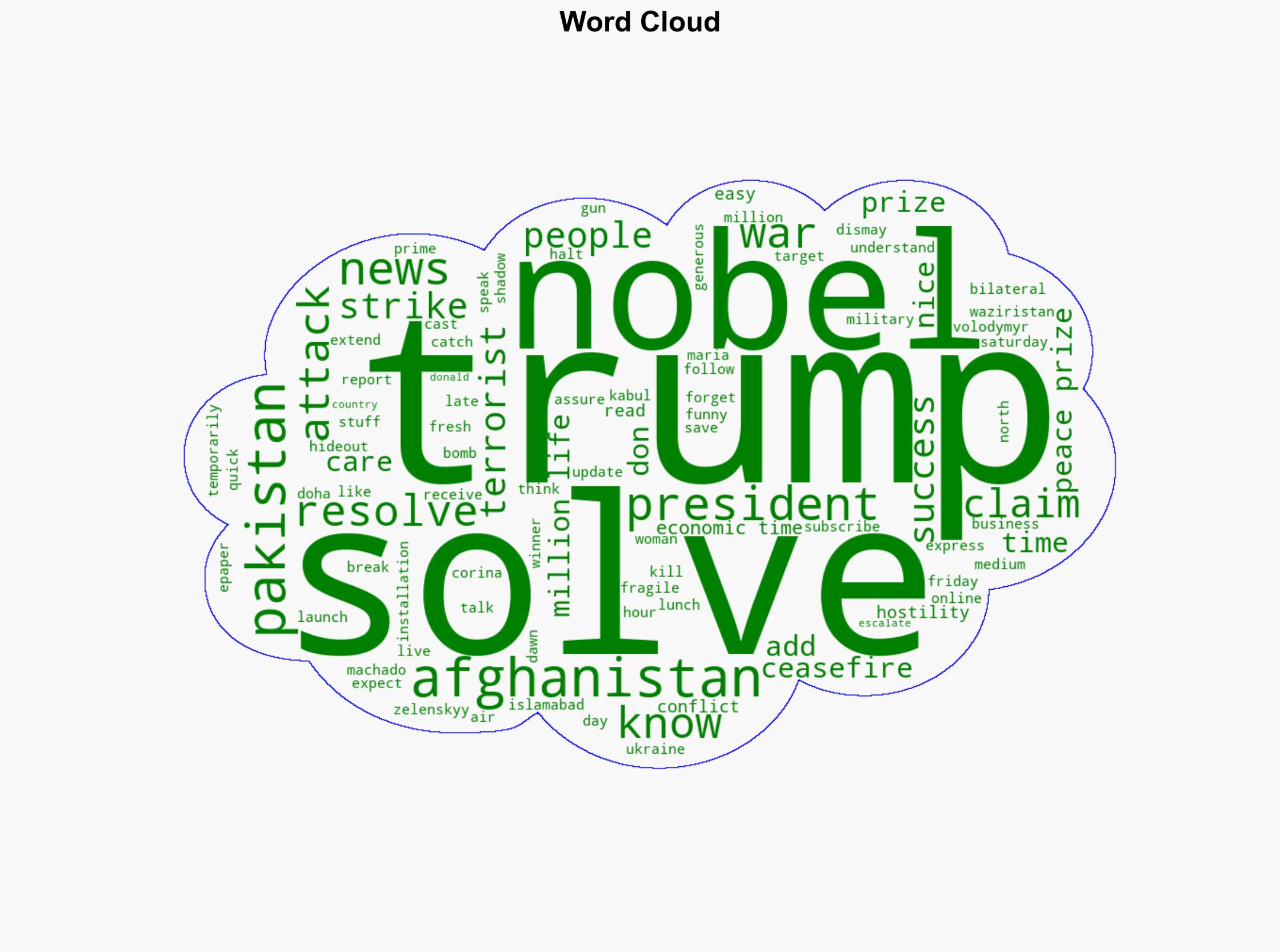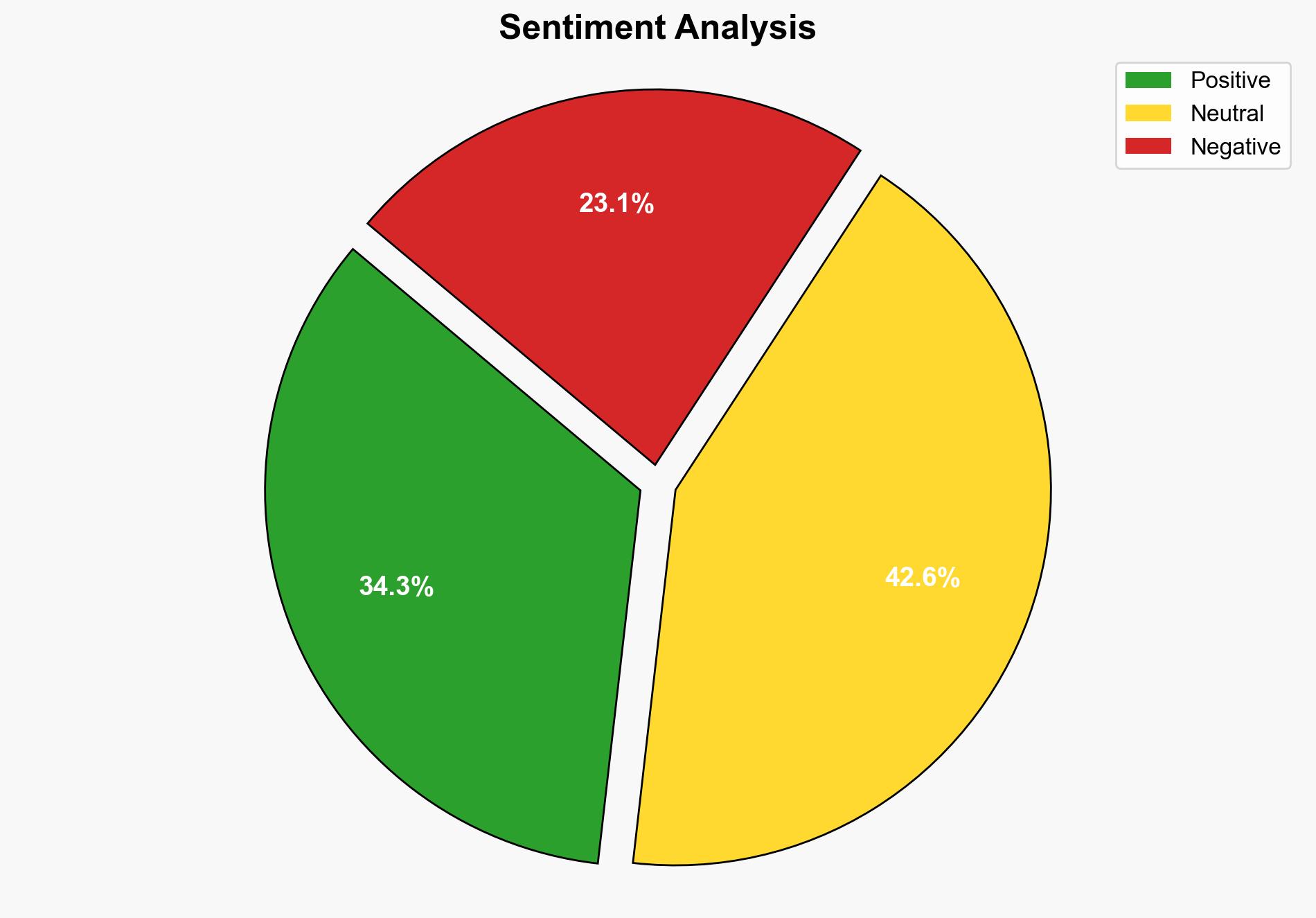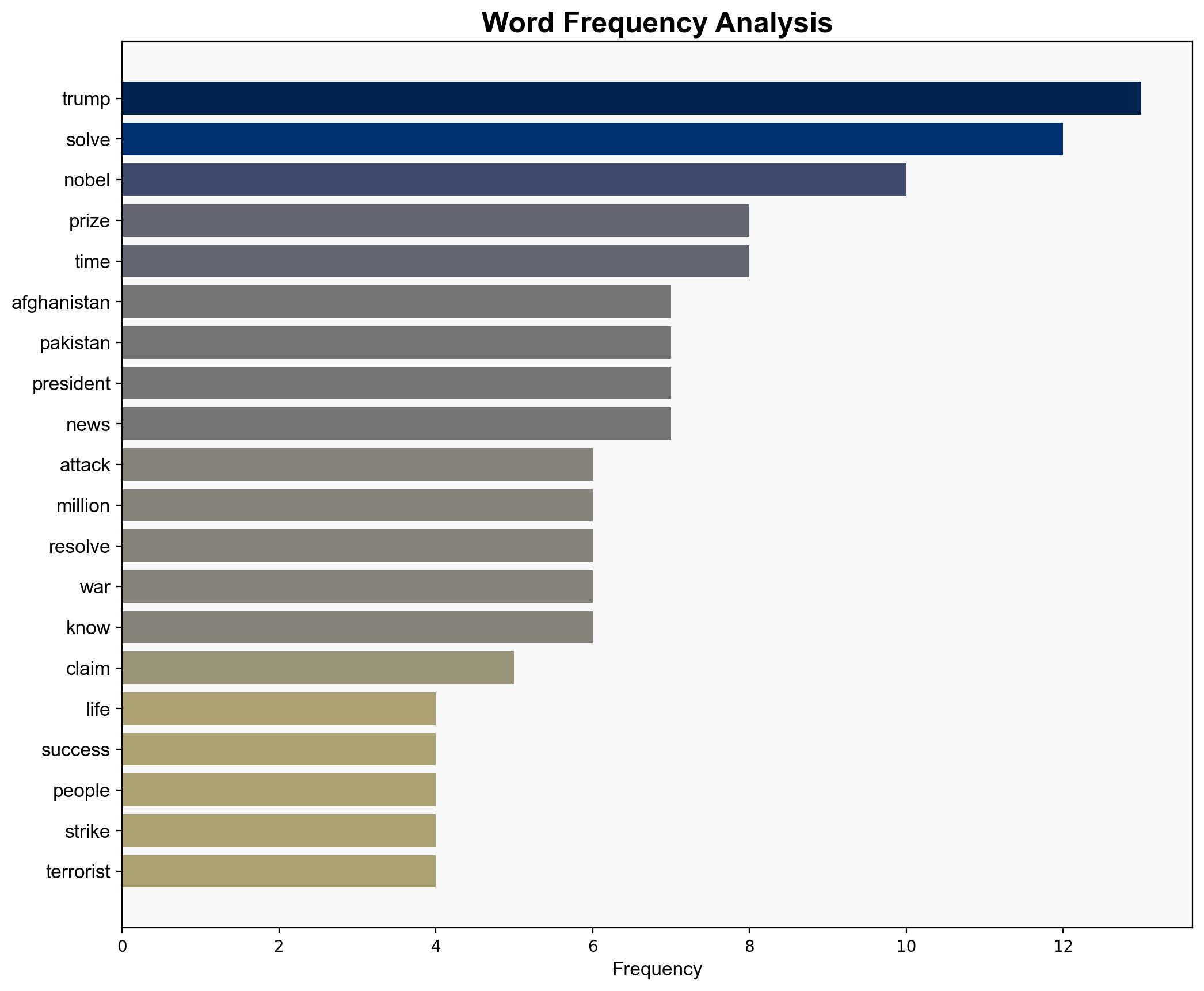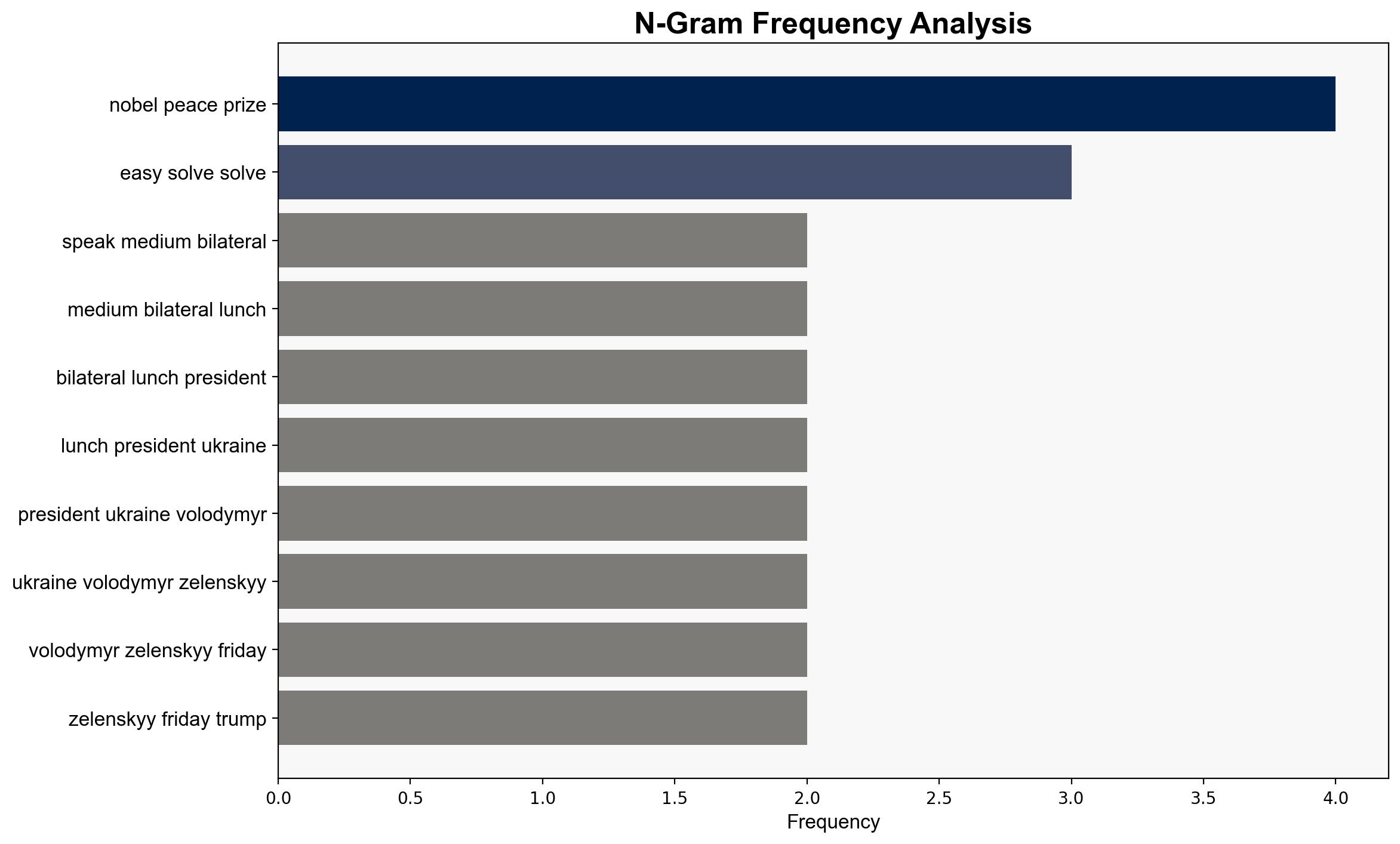US President Donald Trump says Pakistan-Afghanistan conflict is ‘easy’ for him to solve – The Times of India
Published on: 2025-10-18
Intelligence Report: US President Donald Trump says Pakistan-Afghanistan conflict is ‘easy’ for him to solve – The Times of India
1. BLUF (Bottom Line Up Front)
The most supported hypothesis is that President Trump’s statements are primarily rhetorical, aimed at projecting confidence and influence rather than indicating a concrete plan to resolve the Pakistan-Afghanistan conflict. Confidence level: Moderate. Recommended action: Monitor for any policy shifts or diplomatic engagements that may follow these statements, while remaining cautious of potential escalations in regional tensions.
2. Competing Hypotheses
1. **Rhetorical Strategy Hypothesis**: President Trump’s comments are primarily rhetorical, intended to project strength and influence in international affairs without a specific plan for conflict resolution. This aligns with his historical communication style and public statements.
2. **Strategic Initiative Hypothesis**: The statements indicate a forthcoming strategic initiative or diplomatic effort by the US to actively engage in resolving the Pakistan-Afghanistan conflict, possibly involving new negotiations or peace talks.
Using ACH 2.0, the Rhetorical Strategy Hypothesis is better supported due to the lack of concrete evidence or follow-up actions suggesting a strategic initiative. The context of the statements, made during a bilateral lunch, further supports a rhetorical interpretation.
3. Key Assumptions and Red Flags
– **Assumptions**: The Rhetorical Strategy Hypothesis assumes that Trump’s statements are consistent with his past behavior, where bold claims are often not followed by immediate action. The Strategic Initiative Hypothesis assumes that there is undisclosed planning or diplomatic engagement underway.
– **Red Flags**: The absence of specific details or follow-up actions from the US administration could indicate a lack of substantive policy change. Additionally, the timing of the statements amidst ongoing regional tensions could exacerbate instability.
4. Implications and Strategic Risks
– **Geopolitical Risks**: The statements could increase tensions between Pakistan and Afghanistan, potentially disrupting ongoing peace talks in Doha.
– **Psychological Impact**: Such rhetoric may embolden or provoke regional actors, impacting local perceptions of US involvement.
– **Cascading Threats**: Any perceived US disengagement or miscalculation could lead to increased terrorist activities or military escalations in the region.
5. Recommendations and Outlook
- Monitor regional responses to Trump’s statements for signs of increased tensions or shifts in diplomatic stances.
- Engage with regional allies to assess their interpretations and responses to the US position.
- Scenario Projections:
- Best Case: The statements lead to renewed diplomatic efforts and engagement in peace talks.
- Worst Case: Escalation of military actions in the region, disrupting peace processes.
- Most Likely: No significant change in the status quo, with continued tensions and sporadic violence.
6. Key Individuals and Entities
– Donald Trump
– Volodymyr Zelenskyy
– Maria Corina Machado
7. Thematic Tags
national security threats, cybersecurity, counter-terrorism, regional focus





